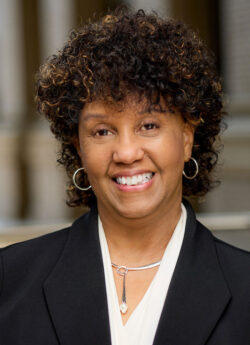Leadership
Dean

David H. Perlmutter, MD
Executive Vice Chancellor for Medical Affairs, WashU
Spencer T. and Ann W. Olin Distinguished Professor
George and Carol Bauer Dean, WashU Medicine
Executive leadership


Doug Frantz, PhD
Vice Chancellor for Innovation & Commercialization, WashU
Professor, Biochemistry & Molecular Biophysics, WashU Medicine

Mark Lowe, MD, PhD
Vice Chancellor for Research, WashU
Senior Associate Dean of Research, WashU Medicine

Paul Scheel, MD
Vice Chancellor for Clinical Affairs
Chief Executive Officer, Faculty Practice Plan

Renée Shellhaas, MD
Senior Associate Dean for Faculty Promotions and Career Development

Rick Stanton
Vice Chancellor for Medical Finance and Administration

Sherree Wilson, PhD
Associate Vice Chancellor and Associate Dean for Diversity, Equity and Inclusion
Executive Faculty
The Executive Faculty is responsible for the administration, regulation and management of the affairs of WashU Medicine. Its responsibilities include approving school policies with respect to educational affairs, providing counsel on the formulation of other major school policies, approving and recommending faculty appointments and promotions, and approving the conferral of degrees.
Faculty committees and council
Faculty committees and the faculty council govern various aspects of WashU Medicine activities related to research, patient care and education. Their purpose is to help ensure that the school’s activities are carried out in compliance with university policies as well as with state and federal law.
Officers and National Council
The university’s and medical school’s boards and officers include strategic and administrative leadership.
- Officers of WashU Medicine
- Board of Directors, Washington University Medical Center
- National Council, WashU Medicine
Department heads and program deans
The school’s three allied health programs and 21 academic departments support the school’s three-part mission of conducting outstanding patient care, education and research.
Student leadership
The Medical Student Government is the main communication pathway between the student body and the administration. The body is responsible for advancing student interests and welfare to achieve excellence in academic pursuits and professional interactions.
University leadership
WashU leadership includes the chancellor; the provost, who serves as chief academic officer; the Board of Trustees, which serves as the chief governing body of the university; and the University Council, which advises the chancellor.



